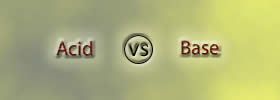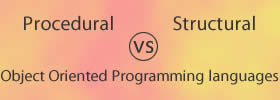Difference between RTGS and ECS
Key Difference: 'RTGS' stands for Real Time Gross Settlement. It is an online system through which the funds can be transferred from one institution to the other in real time. ‘ECS’ stands for Electronic Clearing Service. It is a mode of electronic funds transfer in which bulk transfers take place from one account to the other. The bulk transfer usually contains low value transactions.
'RTGS' stands for Real Time Gross Settlement. As the name indicates, settlement in RTGS is done on a real time. It is an online system through which the funds can be transferred from one institution to the other. Banks are important institutions that use this kind of settlement. This electronic payment system is normally controlled by the central bank of a country. This involves no physical exchange of money but the values in the electronic accounts are changed.
 It is the fastest way in which the money can be transferred within the country. All transactions sent through RTGS are queued and submitted on the basis of ‘First in first out’. RTGS enabled banks can also prioritize the transactions according to the requirement. Transactions are settled on one to one basis without clubbing with other transaction. Transactions between banks are settled on a continuous gross basis (on a transaction by transaction basis) with the Central Bank. In RTGS the transactions are processed continuously. Therefore the transfers are quick and very useful during emergencies. It is a real time processing system thus, there is no waiting time attached with this system. It also helps in giving a clear picture of the accounts at any instance. The World Bank also offers help to countries who want to implement the system. RTGS systems are generally secure as they are designed by keeping the international standards in mind. Goals of RTGS:
It is the fastest way in which the money can be transferred within the country. All transactions sent through RTGS are queued and submitted on the basis of ‘First in first out’. RTGS enabled banks can also prioritize the transactions according to the requirement. Transactions are settled on one to one basis without clubbing with other transaction. Transactions between banks are settled on a continuous gross basis (on a transaction by transaction basis) with the Central Bank. In RTGS the transactions are processed continuously. Therefore the transfers are quick and very useful during emergencies. It is a real time processing system thus, there is no waiting time attached with this system. It also helps in giving a clear picture of the accounts at any instance. The World Bank also offers help to countries who want to implement the system. RTGS systems are generally secure as they are designed by keeping the international standards in mind. Goals of RTGS:
1. To reduce settlement risk due to settlement lag
2. To reduce credit risk
3. Speed up the process of high value payments
4. To give accurate position of the participating bank
‘ECS’ stands for Electronic Clearing Service. This service is used for bulk transfers from one account to the other. The ECS uses services of a clearing house. The bulk transfer usually contains low value transactions. It is generally divided into two categories: ECS Debit and ECS Credit. ECS transactions are settled locally in the current accounts maintained with the bank that manages the clearing house. It involves the payment or receipt for transactions that are repetitive and occurs periodically. It is often used for making payments such as distribution of dividend interest, salary, pension, etc. In India Electronic Clearing Service was introduced by Reserve Bank of India. Advantages of ECS Debit to customers:
usually contains low value transactions. It is generally divided into two categories: ECS Debit and ECS Credit. ECS transactions are settled locally in the current accounts maintained with the bank that manages the clearing house. It involves the payment or receipt for transactions that are repetitive and occurs periodically. It is often used for making payments such as distribution of dividend interest, salary, pension, etc. In India Electronic Clearing Service was introduced by Reserve Bank of India. Advantages of ECS Debit to customers:
1. ECS Debit mandates will take care of automatic debit to customer accounts on the due dates without bothering customers to visit bank or any centre.
2. Customers are not worried about the due dates for payments.
3. Debits to customer accounts can be monitored by the ECS Users, and the customers are alerted accordingly.
4. Cost effective.
Settlement in ECS can be explained as: The entity making the payment submits the payment instruction through its sponsor bank. Suppose on day T, the instructions are processed at the clearing house and passed on to the beneficiary bank. If the beneficiary bank cannot credit the customer due to any reason, then the instructions are returned. A separate return clearing is held and then the final settlement is completed on T+1 day.
|
|
RTGS |
ECS |
|
Definition |
Transactions are processed and settled in real time and on gross level |
This service is used for bulk transfers from one account to the other. |
|
Money Transfer System |
Swifter |
Clearing house may combine the settlements of more than one input submissions on a single day. Thus comparatively less swift. |
|
Transactions |
Focus on high value transactions |
Focus on bulk transfers |
|
Type |
Non-retail |
Retail |
Image Courtesy: kanyakabank.in, rediff.com









Add new comment